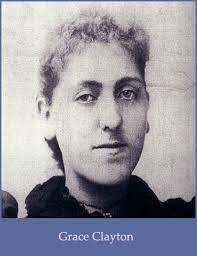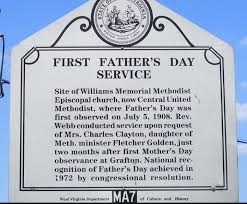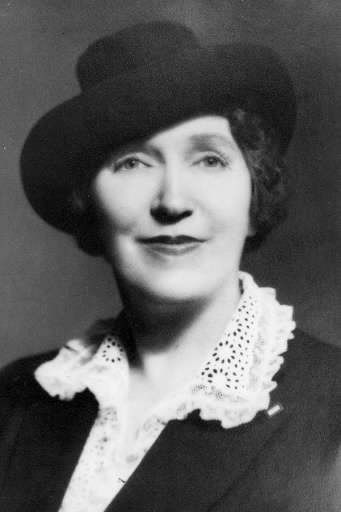From column #1079 June 1963 THE TIMES TRAVELLER
SPECIAL DAY FOR FATHERS
To a child, father means safety, security, a refuge from pain and defeat. Father means discipline, the setter of rules and regulations that govern a small world and give it direction. His guidance increases to meet our ever changing needs. His strength and experience help to shape our character. His wisdom leaves us the master of our own destiny.
The word conjures up images in our society. Father, the payer of bills; the bringer home of the bacon; the long-suffering down-trodden servant of Mom and the kids; the golfer, the fisherman, hunter, sportsman who spends week days at the office and weekends with the boys.
Despite these derogatory images Dad will be top dog Sunday, June 16, when we celebrate Father’s Day.
HISTORY OF FATHER’S DAY
Fatherhood has been a memorable if not always an honoured event. In the Stone Age, the family’s ‘headman’ was a tyrant and one of his sons would eventually kill him and replace him as head man.
Coutts Hallmark Cards say the first known tribute to fathers was by a Babylonian named Elmesu who wrote an elegy on a clay tablet about 2000 years before Christ.
During Biblical times, it was a crime punishable by death for a son to disagree with his father. Early Romans called down curses of the family gods on children who cut themselves loose from parental authority.
Ancient rituals in some lands have fathers choosing their son’s bride. In the African Sudan, after giving her husband five children, a wife may return to her parents leaving Papa to raise the brood. In Ecuador, it is customary for an expectant mother to be put out of the house while her husband is coddled and humoured until he recovers from the shock of becoming a father.
In 1909, a mother, Mrs. John Dodd of Spokane, Washington proposed the day as a tribute to fathers. Her own father, William Smart, was a Civil War veteran who raised his six children after his wife died. The Spokane Ministers Association sponsored the first city-wide Father’s Day in 1910 and it rapidly became a national holiday. The Day chosen is the third Sunday in June.
Father’s Day in Canada was first officially celebrated in June 1968 and thereafter, each year, on the third Sunday in June. It is not an official public or statutory holiday. Canadians have family reunions on this day to honour their fathers.
MORE BACKGROUND
Grace Golden Clayton organized the first Father’s Day, a one-time event on July 5, 1908 in Fairmont, West Virginia, in the Williams Memorial Methodist Episcopal Church South. She was mourning the death of her father and suggested that Pastor Robert Thomas Webb honour the 362 workers, many of them Italian immigrants, who died the previous December (1907) in the infamous Monongah Mining disaster in West Virginia. She is quoted, “It was partly the explosion that got me to thinking how important and loved most fathers are. All those lonely children and those heart-broken wives and mothers, made orphans and widows in a matter of a few minutes.” The mine explosion was one of the deadliest industrial accidents in American history, leaving 260 widows and more than 1,000 children without fathers. Clayton’s event was never promoted outside the town itself, and no proclamation of it was made by the city council.

However, Sonora Smart Dodd from Spokane, Washington is most commonly credited as the founder of Father’s Day. A church sermon about the newly recognized Mother’s Day in 1909 inspired Dodd to tell her Pastor that fathers should have a similar day to honour them and she lobbied local churches to celebrate a Father’s Day in June 1910. She was a member of Old Centenary Presbyterian Church (now Knox Presbyterian Church), where she first proposed the idea. She had deeply respected and admired her father William Jackson Smart, a widowed American Civil War veteran who kept his family together after his wife’s death in childbirth, raising his five young sons as a single parent on a rural farm with her help. Although she initially suggested June 5, her father’s birthday, the pastors did not have enough time to prepare their sermons, and the celebration was deferred to the third Sunday in June. Several local clergymen accepted the idea, and on June 19, 1910, the first Father’s Day, “sermons honouring fathers were presented throughout the city”. On June 19, 1910, a Father’s Day celebration was held at the YMCA in Spokane, Washington. Spurred by Dodd’s concerted efforts over several decades, the 1910 celebration in Spokane spread to other cities across the U.S.
Unlike the founder of Mother’s Day, Anna Jarvis, who battled against the commercialization of Mother’s Day, Dodd supported the National Council for the Promotion of Father’s Day, an association of men’s wear retailers and trade groups that was formed in the 1930s to market the holiday and lobby for its official recognition. Eventually a 1966 presidential proclamation declared the third Sunday of June as Father’s Day, which was followed in 1972 by a congressional resolution establishing the permanent national observance of the holiday in the U.S.
In the 1920s, Dodd stopped promoting the celebration because she was studying at the Art Institute of Chicago, and it faded into relative obscurity. In the 1930s, Dodd returned to Spokane and started promoting the celebration again, raising awareness at a national level. As mentioned she gained the help of trade groups that would benefit most from the holiday. By 1938 she had the help of the Father’s Day Council, founded by the New York Associated Men’s Wear Retailers, to consolidate and systematize the holiday’s commercial promotion.
Americans resisted the holiday for its first few decades, viewing it as nothing more than an attempt by merchants to replicate the commercial success of Mother’s Day, and newspapers frequently featured cynical and sarcastic attacks and jokes.
A bill to accord national recognition of the holiday was introduced in Congress in 1913. In 1916, President Woodrow Wilson went to Spokane to speak at a Father’s Day celebration. He wanted to make it an officially recognized federal holiday, but Congress resisted fearing that it would become commercialized.

In 1957, Maine Senator Margaret Chase Smith wrote a Father’s Day proposal accusing Congress of ignoring fathers for 40 years while honoring mothers, thus “[singling] out just one of our two parents”. In 1966, President Lyndon B. Johnson issued the first presidential proclamation honouring fathers, designating the third Sunday in June as Father’s Day. Six years later, the day was made a permanent national holiday when President Richard Nixon signed it into law in 1972.
